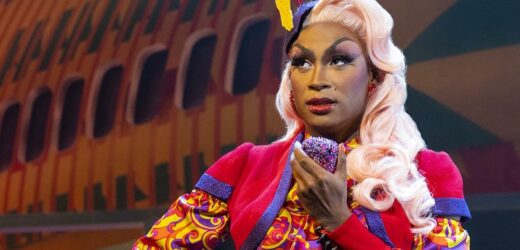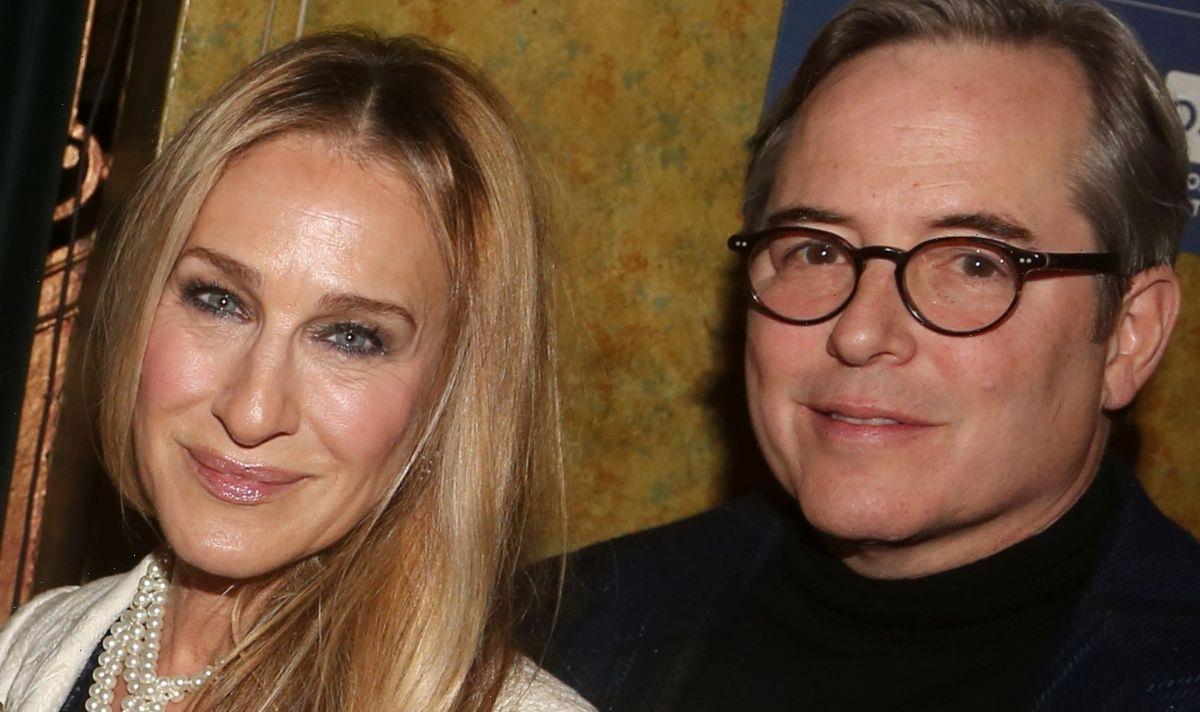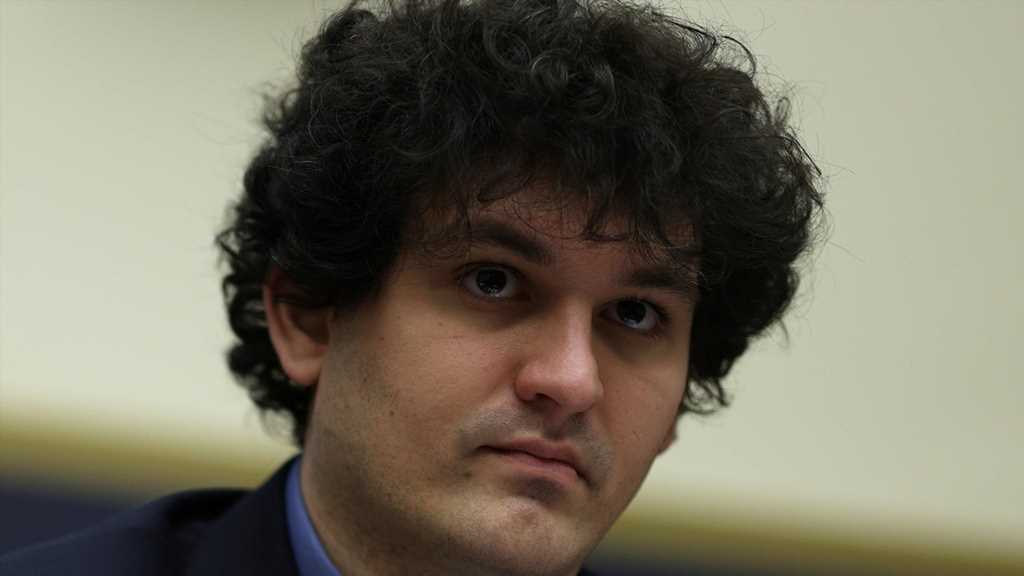Moments before showtime at a recent performance of “Ain’t No Mo,’” a bold new Broadway play, the show’s creator and star Jordan E. Cooper encouraged audience members to take out their phones — usually a faux pas at the theater — and snap a picture of their Playbill.
“This isn’t a pre-recorded message,” he shouted over the loudspeaker. “I can see who isn’t doing it!”
Cooper’s request came with an impassioned plea to post on social media with the hashtag #SaveAintNoMo. He learned days earlier that his play, a biting satire about America’s attempt to end racism by offering Black people a one-way plane ticket to Africa, will close on Dec. 18, less than three weeks after opening night. It is the latest Broadway show, along with the musical “KPOP” and Gabriel Byrne’s one-man show “Walking With Ghosts,” to abruptly close this fall due to poor ticket sales.
“It’s a tough time for shows of color,” Cooper told an encouragingly packed room of theatergoers. “We had a hard time finding our audience because traditional marketing doesn’t work for this kind of show. We need time.”
“Ain’t No Mo,’” which ran Off Broadway in 2019 before transferring to the Belasco Theater on Dec. 1, struggled to fill seats even with positive reviews and serious behind-the-scenes pedigree. The play counts Oscar winner Lee Daniels, RuPaul Charles, “Slave Play” creator Jeremy O. Harris, Lena Waithe, Gabrielle Union and Dwayne Wade among its starry producers.
It’s a shame, Cooper says, because “Ain’t No’ Mo’” is unlike anything that’s been on Broadway. And audience members would be hard pressed to disagree. Have you ever attended a show where its creator gets the crowd to chant “yes, bitch” before curtain call?
“I want to keep redefining what Broadway looks like,” Cooper tells Variety the day after delivering his showtime announcement.
And Cooper insists he isn’t paying any mind to the eviction notice — “thank God Black people are immune,” he joked on Instagram. At the very least, he’s not willing to vacate the house quietly. “I don’t mind going down,” he says, “but I ain’t going down without a fight. There is an audience for plays like this.”
How did you find out “Ain’t No Mo’” would be closing so soon?
Lee Daniels called me because he’s like Papa Bear. He wanted to soften the blow. I was shocked because I thought it didn’t give people enough time to know about the show. This is not even a week since reviews have come out. It’s frustrating because we didn’t even get a chance. The reviews have been amazing. Audiences have been loving it. We need to let people know this exists.
What’s the biggest obstacle facing new Broadway plays?
It’s so much bigger than “Ain’t No Mo.’” We have to change the way we market shows of color that don’t come with a celebrity lead or material based on intellectual property, like “MJ: The Musical.” With things that are recognizable to people, the marketing does itself. Traditionally, there’s one way of marketing Broadway, and it’s to the same people who would see “Hello, Dolly” with Bette Midler. But the people who would see “Hello, Dolly” with Bette Midler aren’t necessarily the audience for “Ain’t No Mo.’” Unless you’re me. A lot of Black folks don’t know about “Ain’t No Mo.’” It takes more than a week to build an audience.

What could have been done differently?
Shows like this need time to build buzz. It’s a lot different when you’re “A Strange Loop” that has a Pulitzer Prize, a cast album and an Off Broadway production. “A Slave Play” went directly from Off Broadway to Broadway. The buzz was already built in. Our disadvantage was that we didn’t go straight from Off Broadway to Broadway because of COVID. We had to build our buzz from the ground up, and it takes more than two weeks to do that. That’s why I’m asking for time to show that “Ain’t No Mo’” can exist.
What needs to happen to save the show?
It’s all about ticket sales and box office. We have a weekly cost, and we have to make a little bit more than that weekly cost in order to survive. Before, we weren’t making our weekly costs, but we’d only been open for a week. Now, in order to survive, we have to be at a certain point at the box office in order for it to make sense [to stay open].
Do you have a sense from producers whether ticket sales have changed in the last few days?
We have hope. This is possible. It looks like things might be coming together. We just need people to keep on coming out and supporting.
Since the pandemic, it’s been a tough time for almost every Broadway show. Even “Funny Girl” took months and a big casting change to heat up at the box office. Did the producers of “Ain’t No Mo’” budget to account for COVID-era challenges?
No, I don’t think we have the same grace as “Funny Girl.” I think that has a lot to do with the fact that we’re not recognizable names. We definitely need the same shot.
Why hasn’t Broadway seen a play like “Ain’t No Mo’”?
I don’t think people thought it could work commercially when there’s no star. A lot of artists of color are used to having to paint a coat over their language so that is palatable to white audiences and Broadway audiences. I wrote it from a raw place, not necessarily thinking anyone would ever produce it. It feels like to me like those old school comedy albums from Redd Foxx and Eddie Murphy, like, “Should I be saying this?” I wanted to bring that energy to Broadway and show it doesn’t always have to be palatable.
Are you worried the show’s abrupt closure will have a chilling effect on similarly ambitious and unconventional plays?
I am worried about that. That’s why I’m fighting. It’s not because of the material. It’s because of how everything was set up. The marketing wasn’t the best it could have been. And the timing hasn’t been exactly the best.
What has it been like to see support from Will Smith, Jada Pinkett Smith and Lena Waithe, who have been buying out performances?
It’s been amazing. It’s so beautiful to watch the community work. Seeing these people put their money where their mouth is overwhelmingly nice. We show up for each other, and it’s not doing it out of charity. No, actually this is some good shit.
“Ain’t No Mo’” encourages the audience to treat the show like church. What has the response in the theater been like for you?
Theater is like Sunday morning. This kind of show can be interactive. There’s been a lot of times where I will see Broadway shows, and I’m from South Texas… I’m loud already. When something hits my spirit, I’m going to have an audible response. I want to create a space where somebody like me could shout “Yes!” in the middle of a scene if they feel something in their spirit. I love it. That’s what theater for. It’s not a museum piece. We’re not watching paint dry.
Read More About:
Source: Read Full Article


